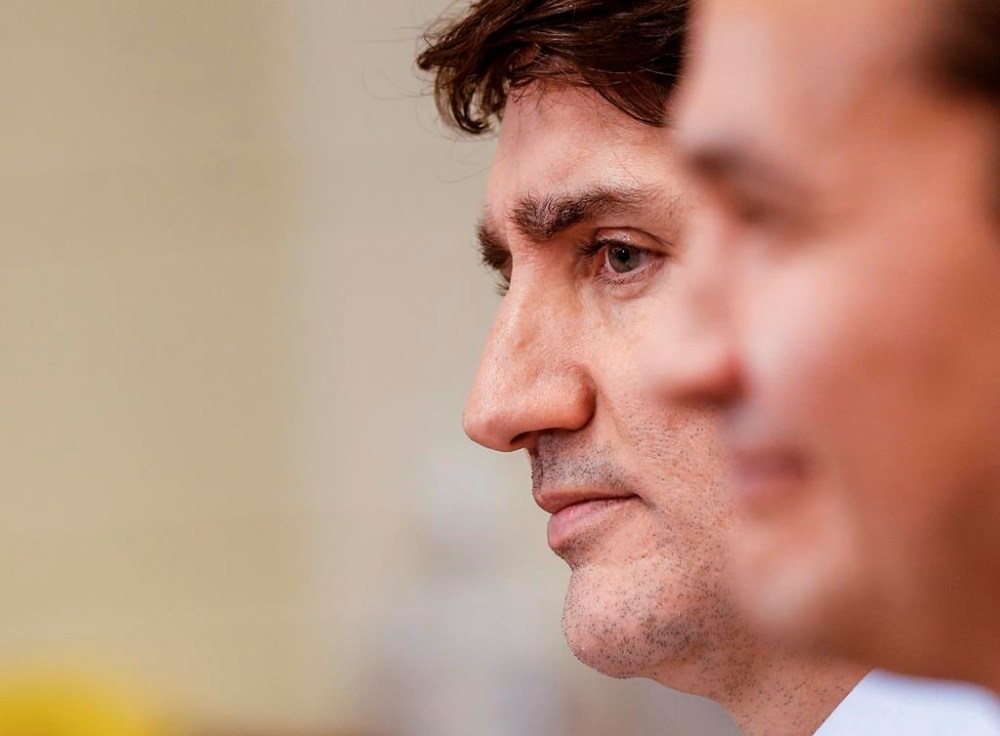Trudeau, Kinew hail massive health accord, blame Tories for crisis
Advertisement
Read this article for free:
or
Already have an account? Log in here »
To continue reading, please subscribe:
Monthly Digital Subscription
$0 for the first 4 weeks*
- Enjoy unlimited reading on winnipegfreepress.com
- Read the E-Edition, our digital replica newspaper
- Access News Break, our award-winning app
- Play interactive puzzles
*No charge for 4 weeks then price increases to the regular rate of $19.00 plus GST every four weeks. Offer available to new and qualified returning subscribers only. Cancel any time.
Monthly Digital Subscription
$4.75/week*
- Enjoy unlimited reading on winnipegfreepress.com
- Read the E-Edition, our digital replica newspaper
- Access News Break, our award-winning app
- Play interactive puzzles
*Billed as $19 plus GST every four weeks. Cancel any time.
To continue reading, please subscribe:
Add Free Press access to your Brandon Sun subscription for only an additional
$1 for the first 4 weeks*
*Your next subscription payment will increase by $1.00 and you will be charged $16.99 plus GST for four weeks. After four weeks, your payment will increase to $23.99 plus GST every four weeks.
Read unlimited articles for free today:
or
Already have an account? Log in here »
Hey there, time traveller!
This article was published 15/02/2024 (666 days ago), so information in it may no longer be current.
A new $633-million health-care deal served as a backdrop for Premier Wab Kinew and Prime Minister Justin Trudeau to cement the newfound goodwill between the two levels of government, as each took a swipe at the Tories for the state of Manitoba’s health system Thursday.
The two leaders appeared in lockstep while announcing bilateral funding agreements totalling more than a half-billion dollars over five years.
“Even as we take pride in our system, there are some real challenges facing our health systems right now,” Trudeau said during an announcement alongside Kinew, following a meeting with students at RRC Polytech.

THE CANADIAN PRESS/John Woods
Prime Minister Justin Trudeau and Manitoba Premier Wab Kinew, right, attend nursing and paramedic programs at Red River College Polytechnic in Winnipeg, Thursday. Trudeau spent the day in the city and announced an increase in health-care funding for Manitoba.
“It can be too hard to access a family doctor or nurse practitioner, emergency rooms are too often overwhelmed, people are waiting for the surgeries they need and health-care workers are under immense pressure, working in conditions that make it even harder to be there for their patients.”
The pair praised each other’s willingness to collaborate on the new agreements to address shared health priorities and support seniors and long-term care.
“Years of conservative cuts left Manitoba’s health-care system struggling to protect and care for patients and, of course, health-care workers were pushed to their very limits,” said Trudeau, who described Kinew as an outstanding partner.
The premier, for his part, said the province has friends in Ottawa.
“To have the federal government commit that we are going to walk on this path to ensure that there’s more doctors and more nurses for you is good news for the province of Manitoba,” Kinew said, adding most of the new cash will be directed to bedside care.
“It means that the crisis we see today after years of PC closures in the emergency rooms is going to start to turn a corner.”
Under the “Working Together” bilateral agreement, $1.2 billion will flow into the province over 10 years. Five other premiers have signed such deals with Ottawa.
The tailored agreement is part of a larger health-care funding accord announced in February 2023 to increase the federal contribution to the Canada Health Transfer by $46 billion over the next decade.
The first-instalment under the agreement amounts to $434 million over three years, which must be spent on an action plan agreed to by both Ottawa and Manitoba that was released Thursday. The province also signed on to the $199 million, five-year Aging with Dignity agreement to expand home, community and long-term care for seniors.
Kinew said the federal dollars will assist the NDP government to deliver on its election campaign commitment to add more than 1,000 new health-care professionals and cut down on wait times for emergency and surgical care.
In exchange for increasing federal transfers, the Trudeau government demanded provinces demonstrate taxpayer money was being spent on improving patient care and achieving negotiated targets.
According to the plan, by March 31, 2026 the province should have reduced ER wait times for a doctor assessment from 6.6 hours (90th percentile) to 3.9 hours and reduce the average hospital stay from 13.1 days to 11.1 days for all patients.
Its provincial nurse float pool must also be expanded to 400 nurses from 113. The number of clinical psychologists working in the public system must also rise by 12 full-time equivalents.
The province has a target to add 200 new doctors and 150 new nurses by the 2025-26 fiscal year while keeping surgical volumes at pre-pandemic levels. The plan also calls for at least 150 staffed hospital beds to be added to the system and for spinal and orthopedic surgery programs to be expanded.
Provincial Health Minister Uzoma Asagwara said the government is setting aggressive targets and hopes to surpass what is laid out in the action plan.

THE CANADIAN PRESS/John Woods
Prime Minister Justin Trudeau (left) and Manitoba Premier Wab Kinew praised each other’s willingness to collaborate on the new agreements to address shared health priorities and support seniors and long-term care.
“Ultimately, we have to come back to the table in a few years, and I expect that the federal government will expect from us to achieve those targets,” Asagwara said. “So, it’s an ongoing collaborative relationship.”
Manitoba is also required to send data annually to the Canadian Institute for Health Information related to so-called headline indicators and other service areas specified in the agreement.
The province must also produce a public report on its progress on targets and initiatives annually, in addition to providing financial statements to the federal government if it wants to keep the federal cash flowing.
Doctors Manitoba past-president Dr. Candace Bradshaw welcomed the reporting requirements, which she hopes will keep the government accountable to its promise to address the chronic physician shortage following years of advocacy by the organization.
“Once bitten, twice shy, for us,” Bradshaw said. “We’d like to see some accountability and transparency when it comes to how this money is spent and whether it is meeting targets. That always hasn’t been the case in the past.”
According to the plan, the overall cost of new workforce expansion programs is estimated to be in excess of $30 million a year by 2025-26. Money will also be spent on current and future incentives to support recruitment and retention across all providers, with new incentives to be determined through negotiations with unions.
The plan references a new health human resource strategy that will be implemented to add 1,500 new health-care professionals, with federal funding going towards salaries, and a new physician recruitment campaign targeting rural and northern communities.
Retention of nurses must be a key component of the strategy, Manitoba Nurses Union president Darlene Jackson said.
“We are in a critical nursing shortage, we do need more nurses, we are announcing more beds being opened, and this is sort of a (step) into how we’re going to fund those beds and how we’re going to staff those beds,” Jackson said.
The province will not be using federal funding for family health services in the current three-year action plan, nor will it be spending the cash on modernizing the health system with data and digital tools.
danielle.dasilva@freepress.mb.ca













